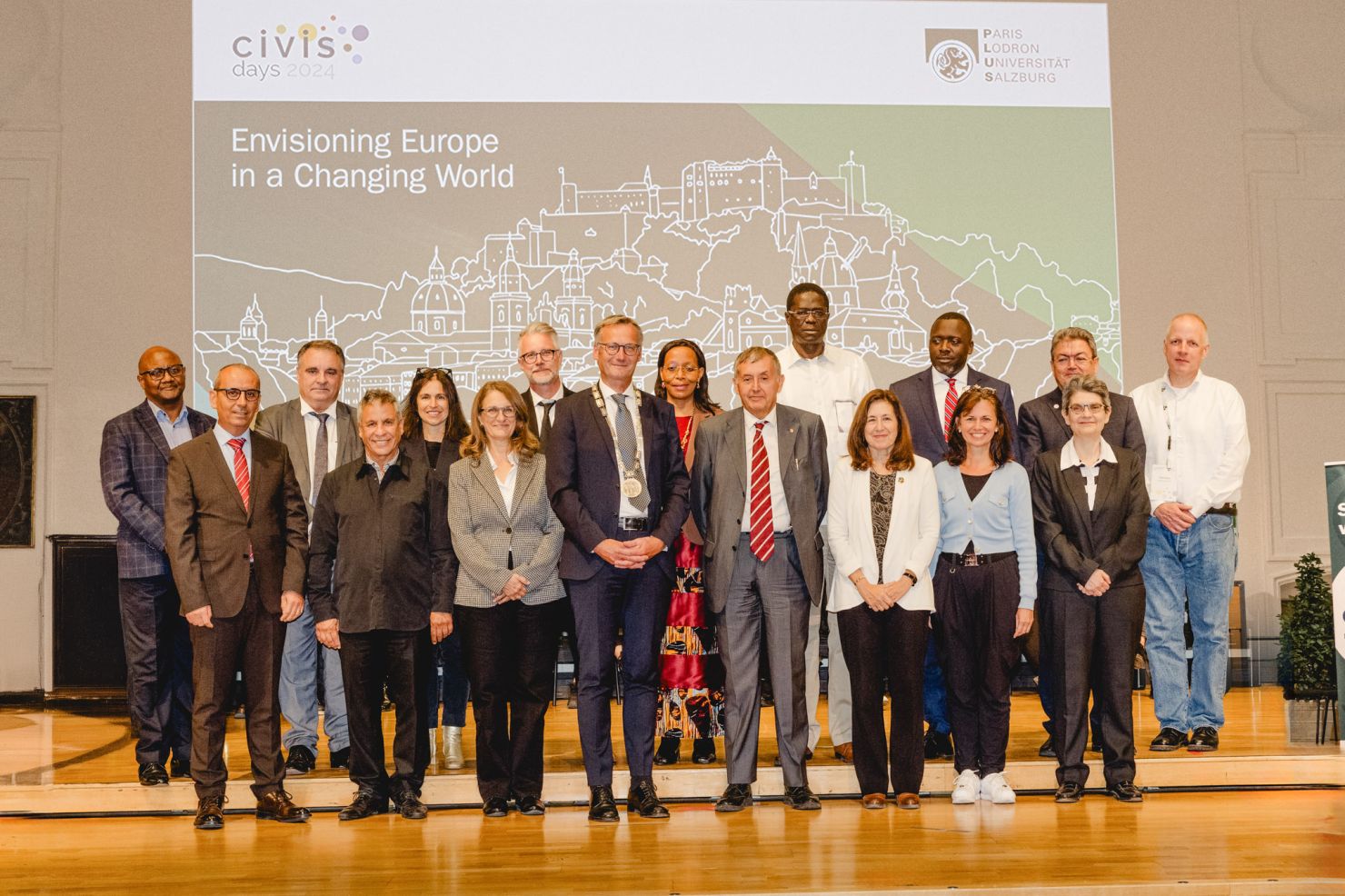
CIVIS: Envisioning borderless education and research
Rectors and representatives of the CIVIS University Alliance convened at the Paris Lodron University of Salzburg (PLUS) to formalise the creation of a new legal entity, the CIVIS Association. The appointment of Stefan Lang, PLUS Vice-Rector for International Affairs and Digitalisation, as the first Secretary General of CIVIS, was also announced during the ceremony.
CIVIS, an alliance of leading European universities, aims to establish a unique inter-university campus, where students, academics, and staff can collaborate as easily as they do within their home institutions. Alongside its academic ambitions, the alliance fosters social commitment, emphasising education that transcends national borders. With the agreement, CIVIS takes a step further in the strategic collaboration with six academic institutions from Africa, that now become associated members.
Co-funded by the European Union since 20219 under the Erasmus+ European Universities initiative, CIVIS represents a new model of higher education. The signing of the agreement in Salzburg marks a significant moment in the Alliance’s history, and a pivotal step toward deeper, long-term collaboration. Representatives of all partner institutions attended the CIVIS International Reception in PLUS Great University Hall.
CIVIS aims to go beyond mere collaboration by integrating its members' educational programmes and research efforts, ensuring competitiveness in the European Higher Education Area and beyond.
A pivotal moment for higher education
Looking ahead, CIVIS remains committed to advancing integrated, cooperative higher education across Europe. The alliance’s efforts extend to developing innovative digital tools and training methods, including virtual modules and multilingual resources to improve mobility for students and staff. The introduction of a European student card is also on the horizon, simplifying access to university services across all CIVIS member institutions. Additionally, a dedicated digital campus to support research collaboration and resource sharing across the alliance is in development
A major theme of the conference was Europe's evolving role in global education. In his keynote speech, Professor Bernhard Rittberger, Professor at the LMU Munich, spoke on the paradoxes of European Union integration,
The EU's own success is increasingly becoming its undoing," a remark that captured the challenges facing European institutions", said Professor Rittberger,
Professor Ariadna Ripoll Servent from the PLUS echoed this sentiment, and likened the EU to "a teenager: full of potential, but often too insecure to realise it."
About CIVIS
The CIVIS Alliance brings together 11 leading research universities throughout Europe: Aix-Marseille Université (UAM), National and Kapodistrias University of Athens (NKUA), Université libre de Bruxelles (ULB), University of Bucharest (UB), University of Glasgow (UfG), University of Lausanne (UNIL). Universidad Autónoma de Madrid (UAM), Sapienza University of Rome (SUR), Paris Lodron University of Salzburg (PLUS), Stockholm University (SU), and the University of Tübingen (UT),
CIVIS connects over 470,000 students and 58,000 staff members—including 35,000 academics in Europe.
Six higher education institutions on the African continent are associated partners in CIVIS: University of Makerere (MAK), Universidade Eduardo Mondlane (UEM), Hassan II University of Casablanca (UH2C), University of Sfax (USF), Université Cheikh Anta Diop de Dakar and University of Witwatersrand in Johannesburg (WITS).
© Foto Scheinast
